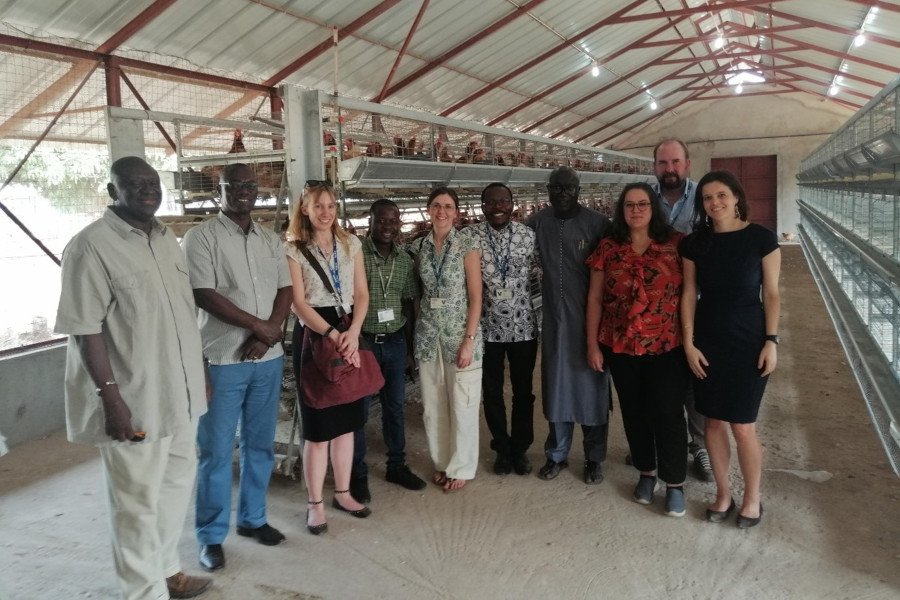
Even prior to COVID-19, the threat of climate change was already affecting the ability of West African food systems to deliver healthy, sustainable and nutritious foods. Since the World Health Organization declared COVID-19 a global pandemic, the situation has worsened, and reforms are needed. In a recent paper published in Nature Food, researchers at Medical Research Council Unit The Gambia at LSHTM provide evidence-based policy recommendations to support West African governments to reform food systems to make them more resilient and better able to deliver healthy and sustainable diets.
The study identified five priority areas including: taking advantage of increased food system investments during COVID-19; adopting innovations such as “climate smart” agriculture; reconfiguring regional trade policies to be more equitable; investing in early warning systems; and ensuring a healthy agricultural workforce.
Zakari Ali, first author of the study and project lead at the MRCG at LSHTM said, “The COVID-19 pandemic has exposed the weaknesses of food systems in the region and has led to increased funding support from local and international organizations which is a real opportunity for governments to invest in food systems in a way that has long term impacts after the pandemic before there is a re-balance in funding in the development community.”
The study is part of a Wellcome Trust-funded two-year project on Food system Adaptations in Changing Environments in Africa (FACE-Africa) led by the MRCG at LSHTM, with other partners based at LSHTM-London, the International Crops Research Institute for the Semi-Arid Tropics (ICRISAT), Research Program, West and Central Africa, Mali; MRC Cambridge, UK; and the International Institute for Applied Systems Analysis (IIASA), Austria. The project was launched in January 2020 in The Gambia and focuses on food systems, climate change adaptation and mitigation in the Gambia as a case country for West Africa.
Dr Pauline Scheelbeek, Assistant Professor at LSHTM and senior author on the paper said, “COVID-19 has once more drawn our attention to the crucial importance of urgently improving the resilience and sustainability of our food systems - especially with climate change impacts adding to the equation. We have the knowledge and tools to address food system problems, but the necessary transformations often cut through traditional policy silos. Hence, it will be of crucial importance that government departments work together in developing, selecting and implementing solutions, while taking note of context-specific co-benefits and addressing potential co-harms of each solution.”
Professor Andrew Prentice, Head of the Nutrition Theme at MRCG at LSHTM said, “We recognise the inherent threats that climate change poses for West African nations. Countries such as The Gambia, on the lower edge of the Sahel, are especially vulnerable to small changes in rainfall. This study is an early output from the MRC’s new investment in research on sustainable diets and planetary health. This new programme will incorporate many aspects of how climate change will impact on human health and on a search for mitigating actions.”
This research is part of FACE-Africa’s aim of working with West African food system stakeholders and providing locally relevant recommendations for sustainable food system reform in the region. .
Our postgraduate taught courses provide health practitioners, clinicians, policy-makers, scientists and recent graduates with a world-class qualification in public and global health.
If you are coming to LSHTM to study a distance learning programme (PG Cert, PG Dip, MSc or individual modules) starting in 2024, you may be eligible for a 5% discount on your tuition fees.
These fee reduction schemes are available for a limited time only.
